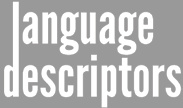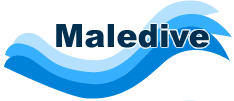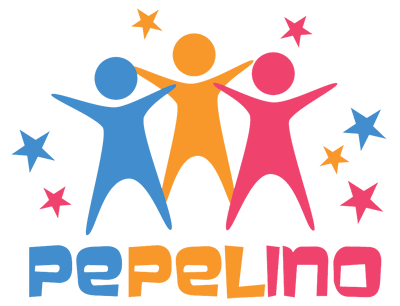LEA ‒ Plurilingual and pluricultural awareness in language teacher education: A training kit
|

|
The LEA (Language Educator Awareness) training kit comprises a set of practical instruments designed to help teacher educators introduce the essential aspects of plurilingualism and pluriculturalism to language teachers and learners. It consists of a printed booklet setting out the rationale for a series of training activities, which are contained on an accompanying CD-Rom.
Available in English and French.
Go to the publication page |
33
LEA ‒ Plurilingual and pluricultural awareness in language teacher education: A training kit
The LEA (Language Educator Awareness) training kit comprises a set of practical instruments designed to help teacher educators introduce the essential aspects of plurilingualism and pluriculturalism to language teachers and learners. It consists of a printed booklet setting out the rationale for a series of training activities, which are contained on an accompanying CD-Rom.
Available in English and French.
Go to the publication page
0
//www.ecml.at/Portals/1/ECML.Publications.Files/6bdda718-25b6-4280-9efe-b21836da4342.jpg
//www.ecml.at/Resources/ECMLPublications/tabid/277/PublicationID/21/language/en-EN/Default.aspx
2
CHAGAL Setup – European curriculum guidelines for access programmes into higher education for under-represented adult learners
|

|
The idea for the CHAGAL project was born out of the realisation that education systems have to be responsive to the diverse backgrounds and specific needs of international students and to adopt effective strategies to offer students every chance of success in their undertakings. An innovative and inclusive curriculum sensitive to the students’ diversity not only promotes positive student reaction and success, but also reflects the host country’s acceptance of the potential these students have to offer.
Available in English.
Go to the publication page |
41
CHAGAL Setup – European curriculum guidelines for access programmes into higher education for under-represented adult learners
The idea for the CHAGAL project was born out of the realisation that education systems have to be responsive to the diverse backgrounds and specific needs of international students and to adopt effective strategies to offer students every chance of success in their undertakings. An innovative and inclusive curriculum sensitive to the students’ diversity not only promotes positive student reaction and success, but also reflects the host country’s acceptance of the potential these students have to offer.
Available in English.
Go to the publication page
2
//www.ecml.at/Portals/1/ECML.Publications.Files/6fbbb8a6-86ba-4953-ac33-2008c8c20ca8.jpg
//www.ecml.at/tabid/277/PublicationID/23/Default.aspx
2
ODYSSEUS – Second language at the workplace: Language needs of migrant workers: organising language learning for the vocational/workplace context
|

|
This book is constructed around a conviction by the authors of the key role of vocational and workplace-related second language provision towards social and economic integration and participation. Knowledge and communicative competences have become pivotal elements of vocational and professional performance at all hierarchical levels for all employees (mother-tongue speakers and speakers of other languages). This publication, which is the result of a cooperation project between the Council of Europe and the European Commission, is an invaluable resource for current and intending workplace language practitioners, as well as company personnel, unions and policy makers.
Available in English and French.
Go to the publication page |
51
ODYSSEUS – Second language at the workplace: Language needs of migrant workers: organising language learning for the vocational/workplace context
This book is constructed around a conviction by the authors of the key role of vocational and workplace-related second language provision towards social and economic integration and participation. Knowledge and communicative competences have become pivotal elements of vocational and professional performance at all hierarchical levels for all employees (mother-tongue speakers and speakers of other languages). This publication, which is the result of a cooperation project between the Council of Europe and the European Commission, is an invaluable resource for current and intending workplace language practitioners, as well as company personnel, unions and policy makers.
Available in English and French.
Go to the publication page
0
//www.ecml.at/Portals/1/ECML.Publications.Files/5b744e6d-09a1-4002-8bc5-5e8725bfa71a.jpg
//www.ecml.at/tabid/277/PublicationID/34/Default.aspx
2
CONBAT – Plurilingualism and pluriculturalism in content-based teaching: A training kit
|

|
Educational institutions increasingly face the challenge of accommodating learners from a wide range of linguistic and cultural backgrounds in their classrooms. The training kit presents an innovative way of managing diversity in the classroom by combining plurilingual and pluricultural approaches with content-based instruction. The reader will discover how content-based and plurilingual activities can be linked to several subjects of the curriculum.
Available in English and French.
Go to the publication page
Go to the project page |
52
CONBAT – Plurilingualism and pluriculturalism in content-based teaching: A training kit
Educational institutions increasingly face the challenge of accommodating learners from a wide range of linguistic and cultural backgrounds in their classrooms. The training kit presents an innovative way of managing diversity in the classroom by combining plurilingual and pluricultural approaches with content-based instruction. The reader will discover how content-based and plurilingual activities can be linked to several subjects of the curriculum.
Available in English and French.
Go to the publication page
Go to the project page
4
//www.ecml.at/Portals/1/ECML.Publications.Files/3ab0fb61-119b-4cb1-8f8c-6be3930edf9d.jpg
//www.ecml.at/tabid/277/PublicationID/69/Default.aspx
2
ENSEMBLE – Promoting linguistic diversity and whole-school development
|

|
The Council of Europe stresses the importance of societal multilingualism and of individual plurilingual competence as means to social cohesion. Why this is important and how it can be achieved are explained in the Language Policy Unit document “Guide for the Development of Language Education Policies in Europe”. Ultimately, it is within the school, at the chalk face, that the necessary innovations need to take place. The case studies presented in this publication are an authentic illustration of how this is being realised in different contexts; and what successes and challenges it presents.
Available in English and French.
Go to the publication page |
54
ENSEMBLE – Promoting linguistic diversity and whole-school development
The Council of Europe stresses the importance of societal multilingualism and of individual plurilingual competence as means to social cohesion. Why this is important and how it can be achieved are explained in the Language Policy Unit document “Guide for the Development of Language Education Policies in Europe”. Ultimately, it is within the school, at the chalk face, that the necessary innovations need to take place. The case studies presented in this publication are an authentic illustration of how this is being realised in different contexts; and what successes and challenges it presents.
Available in English and French.
Go to the publication page
21
//www.ecml.at/Portals/1/ECML.Publications.Files/e00d720a-7bc6-4aaa-b984-7483c2c37e48.jpg
//www.ecml.at/Resources/ECMLPublications/tabid/277/PublicationID/9/language/en-GB/Default.aspx
2
MARILLE – Promoting plurilingualism: majority language in multilingual settings
|

|
Traditionally, teachers of majority languages receive less training to teach a language as a second language or to develop the plurilingual repertoire of their learners than, for example, foreign language teachers.Yet, in today’s societies, learners bring many different languages to school.This means that the teaching of themajority language has to extend beyond teaching it as a first language and adopt elements of second language teaching.
Available in English and German.
Go to the publication page
Go to the project page |
55
MARILLE – Promoting plurilingualism: majority language in multilingual settings
Traditionally, teachers of majority languages receive less training to teach a language as a second language or to develop the plurilingual repertoire of their learners than, for example, foreign language teachers.Yet, in today’s societies, learners bring many different languages to school.This means that the teaching of themajority language has to extend beyond teaching it as a first language and adopt elements of second language teaching.
Available in English and German.
Go to the publication page
Go to the project page
3
//www.ecml.at/Portals/1/ECML.Publications.Files/f357c600-ab7c-457a-9363-b2feda52d4bb.jpg
//www.ecml.at/tabid/277/PublicationID/75/Default.aspx
2
VALEUR ‒ Valuing all languages in Europe
|

|
The aim of the Valeur was to raise awareness of the “additional” languages – those which are not national and regional languages – used in Europe, and collate information about the educational provision made for them. A flyer describes the educational, social and cognitive benefits of plurilingualism and a report includes country by country details of the languages in use, together with recommendations on educational policies to deal with the issues arising from linguistic diversity.
Available in English, French and Hungarian.
Download the publication |
62
VALEUR ‒ Valuing all languages in Europe
The aim of the Valeur was to raise awareness of the “additional” languages – those which are not national and regional languages – used in Europe, and collate information about the educational provision made for them. A flyer describes the educational, social and cognitive benefits of plurilingualism and a report includes country by country details of the languages in use, together with recommendations on educational policies to deal with the issues arising from linguistic diversity.
Available in English, French and Hungarian.
Download the publication
2
//www.ecml.at/Portals/1/ECML.Publications.Files/de61aa6a-5254-4902-b9f4-a3c3ae0e104c.jpg
2
EBP-ICI – Regional/Minority Languages in bi-/plurilingual education: Languages from near and far
|

|
Based on European objectives to favour linguistic diversity and plurilingual and pluricultural education, the publication presents pilotedmaterials, activities and didactic tools. These are related to a theoretical framework which creates links between dominant languages and minority or regional languages in Europe and beyond. A teaching kit also offers a collection of practical examples and recommendations for policy-makers in the area of education.
Available in English and French.
Go to the publication page
Go to the project page |
186
EBP-ICI – Regional/Minority Languages in bi-/plurilingual education: Languages from near and far
Based on European objectives to favour linguistic diversity and plurilingual and pluricultural education, the publication presents pilotedmaterials, activities and didactic tools. These are related to a theoretical framework which creates links between dominant languages and minority or regional languages in Europe and beyond. A teaching kit also offers a collection of practical examples and recommendations for policy-makers in the area of education.
Available in English and French.
Go to the publication page
Go to the project page
1
//www.ecml.at/Portals/1/ECML.Publications.Files/87deeea7-8c08-44a2-b3d1-5bcbbb578962.jpg
2
Plurilingual and intercultural competences. Descriptors and teaching materials
|

|
FREPA National Networks disseminate the tools
developed within the Framework of Reference for
Pluralistic Approaches to Languages and Cultures
(FREPA/CARAP) to support plurilingual and intercultural
education at all levels.
Available in EN, FR and DE
Go to the publication page |
493
Plurilingual and intercultural competences. Descriptors and teaching materials
FREPA National Networks disseminate the tools
developed within the Framework of Reference for
Pluralistic Approaches to Languages and Cultures
(FREPA/CARAP) to support plurilingual and intercultural
education at all levels.
Available in EN, FR and DE
Go to the publication page
5
//www.ecml.at/Portals/1/images/logos/logo-carap-nat-net.gif
http://carap.ecml.at/CARAPinEurope/tabid/3045/language/en-GB/Default.aspx
2
A pluriliteracies approach to teaching for learning
|

|
A pluriliteracies approach builds on CLIL approaches to help
learners become better meaning-makers, who can draw
on content knowledge to communicate successfully across
languages, disciplines and cultures. In this way it promotes
deep learning and helps develop responsible, global citizens.
Available in English and German
Go to the publication page |
495
A pluriliteracies approach to teaching for learning
A pluriliteracies approach builds on CLIL approaches to help
learners become better meaning-makers, who can draw
on content knowledge to communicate successfully across
languages, disciplines and cultures. In this way it promotes
deep learning and helps develop responsible, global citizens.
Available in English and German
Go to the publication page
8
//pluriliteracies.ecml.at/portals/54/logo-pluriliteracies.gif
//pluriliteracies.ecml.at/en-us/
2
Collaborative Community Approach to Migrant Education. A virtual open course for educators
|

|
The resources offer innovative ways to enhance young
migrants’ education by developing links between schools,
the home and local partners in education. This educational
joint venture develops the learners’ skills in the language of
schooling as well as their plurilingual competences.
Available in EN and FR
Go to the publication page |
496
Collaborative Community Approach to Migrant Education. A virtual open course for educators
The resources offer innovative ways to enhance young
migrants’ education by developing links between schools,
the home and local partners in education. This educational
joint venture develops the learners’ skills in the language of
schooling as well as their plurilingual competences.
Available in EN and FR
Go to the publication page
11
//www.ecml.at/Portals/1/images/logos/Logo%20Educo%20migrant.jpg
//www.ecml.at/ECML-Programme/Programme2012-2015/Community/tabid/1836/Default.aspx
2
Language skills for successful subject learning. CEFR-linked descriptors for mathematics and history/civics (Language Descriptors)
|

|
These resources highlight challenges for young learners in subject classes where the language of instruction is not their first language. The focus is on minimum language standards in history/civics and mathematics for learners aged 12/13 and
15/16. The language descriptors are linked to CEFR levels A2, B1 and B2 and available in six languages.
Available in English and French
Go to the publication page
|
497
Language skills for successful subject learning. CEFR-linked descriptors for mathematics and history/civics (Language Descriptors)
These resources highlight challenges for young learners in subject classes where the language of instruction is not their first language. The focus is on minimum language standards in history/civics and mathematics for learners aged 12/13 and
15/16. The language descriptors are linked to CEFR levels A2, B1 and B2 and available in six languages.
Available in English and French
Go to the publication page
10
//www.ecml.at/Portals/1/mtp4/language_descriptors/images/lang-desc-logo.gif
//www.ecml.at/ECML-Programme/Programme2012-2015/LanguageDescriptors/tabid/1800/language/en-GB/Default.aspx
2
A European learning network for professionals supporting work-related second language development (Language for Work)
|

|
Language for Work is a European leraning network for professionals teaching the language of the host country to migrants and ethnic minorities in work-related contexts. The network helps members share and develop their practice.
Available in English
Go to the publication page |
498
A European learning network for professionals supporting work-related second language development (Language for Work)
Language for Work is a European leraning network for professionals teaching the language of the host country to migrants and ethnic minorities in work-related contexts. The network helps members share and develop their practice.
Available in English
Go to the publication page
10
//www.ecml.at/Portals/1/mtp4/language_for_work/images/logo-workplace.gif
http://languageforwork.ecml.at/Home/tabid/3151/language/en-GB/Default.aspx
2
Teaching the language of schooling in the context of diversity. Study materials for teacher development
|

|
The study materials focus on teacher education for the
language of schooling (e.g. French in France, Polish in
Poland). They draw on the linguistic and cultural diversity in
the classroom for the benefit of all learners.
Available in English, French and German
Go to the publication page |
499
Teaching the language of schooling in the context of diversity. Study materials for teacher development
The study materials focus on teacher education for the
language of schooling (e.g. French in France, Polish in
Poland). They draw on the linguistic and cultural diversity in
the classroom for the benefit of all learners.
Available in English, French and German
Go to the publication page
9
//www.ecml.at/Portals/1/mtp4/maledive/images/logo-maledive.gif
http://maledive.ecml.at/Home/tabid/3598/language/en-GB/Default.aspx
2
Parents and teachers: working together for plurilingual and intercultural education
|

|
The aim of this website is to disseminate knowledge on the benefits of involving parents in plurilingual and intercultural education. Working with parents as partners facilitates not only language acquisition, but also the development of positive attitudes towards otherness, attitudes which are necessary for the harmonious development of individuals and society.
Available in English and French
Go to the publication page |
500
Parents and teachers: working together for plurilingual and intercultural education
The aim of this website is to disseminate knowledge on the benefits of involving parents in plurilingual and intercultural education. Working with parents as partners facilitates not only language acquisition, but also the development of positive attitudes towards otherness, attitudes which are necessary for the harmonious development of individuals and society.
Available in English and French
Go to the publication page
6
//www.ecml.at/Portals/1/images/logos/logo-parents-final.png
https://parents.ecml.at
2
European portfolio for pre-primary educators. The plurilingual and intercultural dimension
|

|
This portfolio is designed for educators and teachers in the pre-primary sector, either in initial or in-service training. It encourages personal reflection on the professional skills related to the linguistic and intercultural dimension of working with children.
Available in English and French
Go to the publication page |
501
European portfolio for pre-primary educators. The plurilingual and intercultural dimension
This portfolio is designed for educators and teachers in the pre-primary sector, either in initial or in-service training. It encourages personal reflection on the professional skills related to the linguistic and intercultural dimension of working with children.
Available in English and French
Go to the publication page
7
//www.ecml.at/Portals/1/mtp4/preelementaire/images/pepelino-logo.gif
//www.ecml.at/ECML-Programme/Programme2012-2015/Pepelino/tabid/1833/language/en-GB/Default.aspx
2